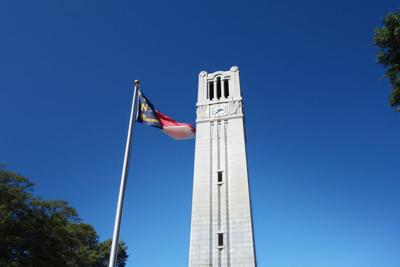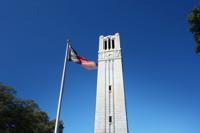(The Center Square) – North Carolina spends more on public universities than most states, according to a recent report from a state-based nonprofit dedicated to higher education.
North Carolina ranked fifth out of all 50 states and the District of Columbia for its university per-student spending, according to a James G. Martin Center for Academic Renewal report released this month.
According to data from the Integrated Postsecondary Education Data System, North Carolina spends an average of $12,365 per student for its four-year public universities. Budget documents show the state spent $1.1 billion in fiscal year 2019 on institutions in its University of North Carolina System.
Members of the Republican-led General Assembly said their fiscal decisions and legislative changes have kept state university tuition affordable for North Carolinians.
“This data shows the incredible investments Republicans in the General Assembly have made to ensure college education remains affordable and equitable,” said Sen. Deanna Ballard, chairperson of the Senate Education/Higher Education Committee.
The North Carolina Constitution requires lawmakers to maintain affordable in-state tuition.
“The general assembly shall provide that the benefits of the university, as far as practicable, be extended to the youth of the State free of expense for tuition,” the constitution reads.
When the constitution was finalized in 1868, public university tuition was $60, which was comparable to $1,450 in 2017, excluding inflation, according to Duke University researchers.
The General Assembly has capped student fee increases and implemented fixed-rate tuition in recent years. The Legislature’s N.C. Promise caps tuition for in-state students at $500 per semester at three UNC System schools and caps out-of-state students’ tuition at $2,500 per semester.
“Legislators are committed to making sure all students have access to a high quality, affordable education that prepares them to enter the workforce,” said Ballard, R-Watauga. “Our dedication to keeping college affordable is a model other states should emulate.”
The James G. Martin Center for Academic Renewal ranked the District of Columbia first for its public university subsidies, followed by Wyoming, Connecticut and Alaska. New Hampshire was ranked last.
According to the Economic Policy Institute, a well-educated workforce can increase high-paying jobs for residents, strengthen a state’s economy and grow state coffers.
“Investing in education is also good for state budgets in the long run, since workers with higher incomes contribute more through taxes over the course of their lifetimes,” Economic Policy Institute researchers said.
College Board’s 2020 report on tuition showed North Carolina’s public four-year universities have the fourth-lowest tuition and fees in the U.S. and average below the nationwide average of $10,560 per semester.









